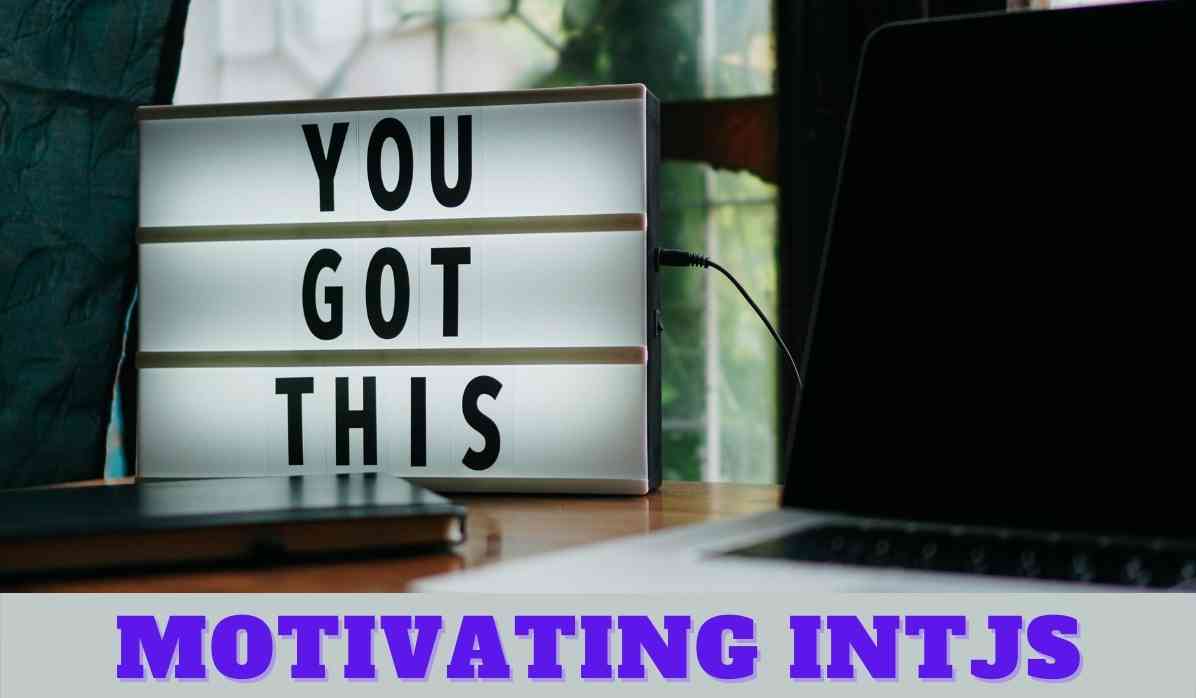How to Motivate an INTJ: Tips For Burnout & Procrastination

Are you curious about how to motivate an INTJ, or perhaps you’ve encountered an INTJ who’s struggling with procrastination?
While it’s true that INTJs tend to be more focused on practical solutions and logical outcomes, they also possess a deep and passionate inner world.
As we delve into the ways to inspire and energize an INTJ, we’ll discuss their distinctive qualities, as well as proven methods for helping them overcome hurdles like procrastination and disinterest.
So, whether you’re an INTJ yourself, a friend, or a loved one, buckle up as we embark on a journey to better understand the inner workings of this exceptional personality type.
Together, we’ll uncover the keys to unlocking an INTJ’s potential, enabling them to thrive in both their personal and professional lives.
Let’s dive in!
What Motivates INTJs?
1. Intellectual challenges
INTJs thrive on mental stimulation and complex problem-solving.
They are driven by the desire to understand the world around them and to develop unique, innovative solutions.
Offer INTJs opportunities to tackle challenging projects or engage in thought-provoking discussions, and you’ll see their motivation skyrocket.
2. Autonomy
INTJs value independence and prefer to work on their terms without excessive oversight or micromanagement.
Give them the freedom to make decisions and approach tasks in their own way, and you’ll find them more motivated and engaged in their work.
3. Mastery and personal growth
INTJs have an innate desire for self-improvement and are constantly seeking to expand their knowledge and skills.
Encourage their pursuit of personal and professional growth by providing access to resources, courses, or mentorship opportunities that align with their interests and aspirations.
4. Clear goals and expectations
INTJs are goal-oriented individuals who appreciate structure and well-defined objectives.
To motivate them, set clear expectations and provide a roadmap outlining the steps needed to achieve their goals.
This will help them focus their energy and maintain a sense of direction.
5. Efficiency
INTJs are always looking for ways to streamline processes and improve productivity.
RELATED: Which MBTI Type Has The Biggest Ego?
They are motivated by the prospect of optimizing systems and eliminating redundancies.
Empower them to contribute to improving workflows or procedures, and they’ll feel valued and inspired.
6. Recognition for their expertise
While INTJs may not be driven by praise or external validation, they do appreciate being acknowledged for their skills and knowledge.
Recognizing their expertise and unique contributions can boost their motivation and reinforce their commitment to their goals.
7. Meaningful impact
INTJs want to make a difference in the world and are motivated by the potential to create lasting, positive change.
Align their work with a larger purpose or mission, and they’ll be more inclined to invest time and effort into their projects.
RELATED: Uranus in Aries: Meaning, Traits & Compatibility
How To Support an Unmotivated INTJ
1. Understand their needs
To help an unmotivated INTJ, start by understanding their unique needs, preferences, and concerns.
Listen carefully to their thoughts and feelings, and provide a supportive environment for open and honest communication.
This will help you identify any underlying issues contributing to their lack of motivation.
2. Encourage goal-setting
Help INTJs rediscover their sense of purpose by guiding them to set clear, achievable goals.
By identifying their short-term and long-term objectives, they can regain focus and direction, ultimately reigniting their motivation.
3. Offer intellectual stimulation
As mentioned earlier, INTJs are driven by intellectual challenges.
Engage them in thought-provoking conversations or present them with interesting problems to solve, stimulating their curiosity and rekindling their passion for learning and exploration.
4. Provide autonomy
Avoid micromanaging an unmotivated INTJ. Instead, give them the freedom to approach tasks and projects in their own way.
This sense of autonomy can empower them and boost their self-confidence, which often leads to increased motivation.
5. Connect with their values
Help INTJs recognize how their goals and interests align with their core values and passions.
By connecting their pursuits to a greater purpose or mission, they can regain motivation and feel inspired to make meaningful contributions.
6. Foster a supportive network
Encourage INTJs to surround themselves with supportive, like-minded individuals who understand their unique needs and can offer valuable insights and encouragement.
RELATED: Most Ambitious MBTI Personalities
A strong support network can help them stay accountable and motivated.
7. Celebrate small wins
Finally, remind INTJs to acknowledge and celebrate their achievements, both big and small.
Recognizing their progress can help build confidence and create a positive feedback loop that sustains motivation over time.
Tips For INTJs To Deal With Procrastination

1. Break tasks into smaller steps
INTJs can sometimes be overwhelmed by the complexity of a project or the sheer volume of tasks they need to complete.
By breaking tasks down into smaller, manageable steps, they can better focus on each individual part and make steady progress, ultimately overcoming procrastination.
2. Set deadlines
As goal-oriented individuals, INTJs benefit from having specific deadlines to hold themselves accountable.
RELATED: What Your INTJ ADHD Brain Wishes You Knew
Establishing deadlines for each step of a project can help INTJs maintain a sense of urgency and prevent them from putting off tasks until the last minute.
3. Prioritize tasks
INTJs should create a priority list of tasks to complete, focusing on those with the highest impact or urgency.
By tackling the most important tasks first, they can build momentum and stay motivated to continue working on less critical items.
4. Establish routines
Developing daily routines and habits can help INTJs maintain consistency and avoid procrastination.
By setting aside specific times for work, exercise, and leisure, they can create a structured environment that supports productivity and helps keep them on track.
5. Minimize distractions
INTJs are often the most productive when they can focus deeply on their work.
To minimize distractions, they should create a dedicated workspace and limit their exposure to potential interruptions, such as social media, email notifications, or noisy environments.
6. Use time management tools
Time management tools, like planners, calendars, or productivity apps, can help INTJs stay organized and on top of their tasks.
By visualizing their schedule and setting reminders, they’ll be better equipped to allocate their time effectively and avoid procrastination.
7. Reward progress
To maintain motivation and combat procrastination, INTJs can reward themselves for completing tasks or reaching milestones.
Small rewards, such as taking a short break or treating themselves to a favorite snack, can provide a sense of accomplishment and reinforce their commitment to staying on track.
RELATED: Sun-Lilith Aspects In Synastry: Detailed Analysis
How Can INTJs Avoid Burnout & Breakdown
1. Set realistic expectations
INTJs are ambitious individuals who may sometimes set excessively high expectations for themselves.
To avoid burnout, it’s essential to establish attainable goals and be willing to adjust them as needed.
Recognizing and accepting one’s limitations can help prevent undue stress and frustration.
2. Prioritize self-care
To maintain balance and well-being, INTJs should make self-care a priority.
This includes regular exercise, a healthy diet, sufficient sleep, and engaging in activities that bring joy and relaxation.
RELATED: Most Mature MBTI Types: 16 Personalities Ranked
By taking care of their physical and emotional needs, they can maintain the energy and resilience needed to tackle life’s challenges.
3. Create boundaries
INTJs must establish clear boundaries between their work and personal lives to avoid burnout.
This can mean setting specific work hours, taking regular breaks, and learning to say “no” when necessary.
Creating boundaries can help them maintain a healthy balance and prevent the feeling of being overwhelmed.
4. Delegate tasks
While INTJs may prefer to handle everything themselves, it’s crucial to recognize when it’s more efficient and beneficial to delegate tasks.
By sharing responsibilities and trusting others, they can alleviate their workload and prevent burnout.
5. Develop a support network
Connecting with like-minded individuals and cultivating a supportive network can help INTJs navigate challenging situations and share their experiences.
Emotional support and understanding from others can be invaluable in managing stress and avoiding burnout.
6. Practice mindfulness
Mindfulness techniques, such as meditation or deep breathing exercises, can help INTJs manage stress and maintain focus.
By practicing mindfulness regularly, they can develop a greater awareness of their thoughts and emotions, which can aid in recognizing the early signs of burnout and taking preventive measures.
7. Reflect and reassess
Regularly reflecting on personal and professional goals, priorities, and well-being can help INTJs identify areas where they may be overextending themselves.
By reassessing their commitments and making necessary adjustments, they can maintain a healthy balance and avoid the path to burnout.
Final Thoughts
In conclusion, understanding and supporting an INTJ’s unique motivational needs, tackling procrastination, and reigniting their passion can make all the difference in their personal and professional lives.
With these strategies in mind, you’re well-equipped to help the INTJs in your life unlock their full potential.
Remember, a motivated INTJ is a powerful force, capable of achieving incredible feats and making a lasting impact on the world around them.
RELATED: Mars Conjunct Ascendant Synastry: Love and Friendships Explained
